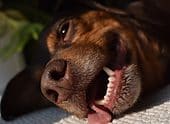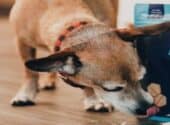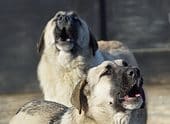A dog is a man’s best friend so when he’s not his usual adorable self it is only normal that you feel concerned.
Diarrhea at night is something that many dogs suffer from but it is always useful to get to the root cause as once you have established the cause of the issue it becomes much easier to fix it.
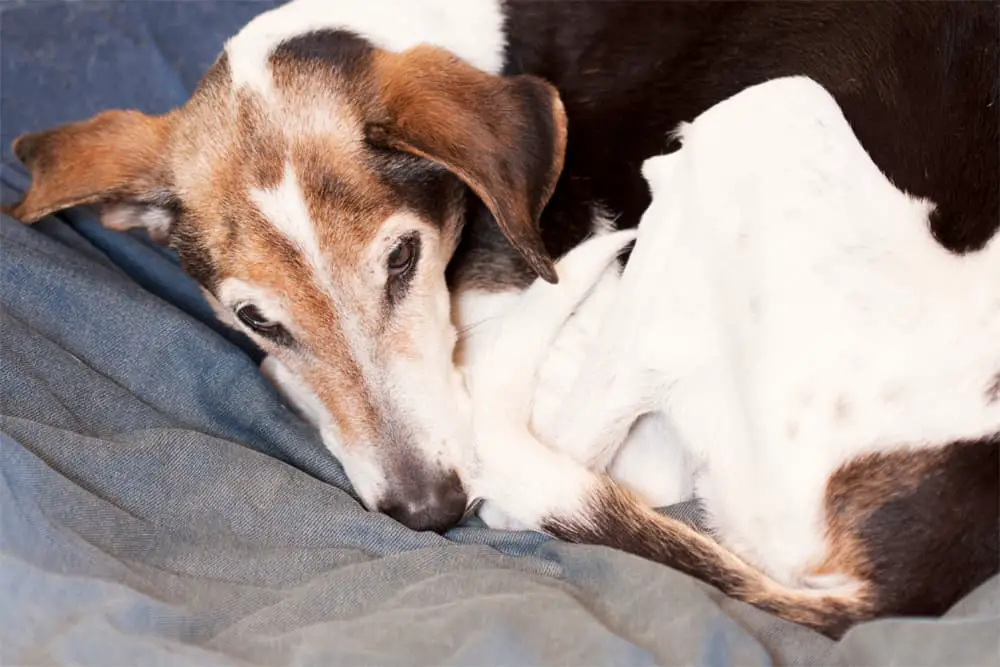
Hopefully, this article will provide a safe space for you to read about many of the common possible causes of your poorly pooches upset tummy.
Dietary Changes
If you have recently changed the kibble that you feed to your four legged friend then this could potentially be the cause of his problem. Once you know that your dog likes a certain brand of kibble it is a great idea to stick with this as sudden changes in diet can really upset a dog’s stomach.
However, obviously this can not always be achieved, sometimes due to reasons beyond your control such as financial issues, moving areas or a dog food brand going bust you may have to try him on some new food.
So, if this has recently happened to you and your pup then this is in all probability the reason for his bowel issues. Similarly if he has just transitioned from puppy food to dry kibble you can expect the same reaction.
Luckily, this is easy to avoid. Vets recommend that you introduce changes and new auditions to a dog’s diet very gradually. You should mix the old food in with the new food and gradually decrease the percentage of old food present while increasing the amount of new food mixed in.
This way your dog’s digestive system can gradually learn that the new food is now its primary source of food and therefore diarrhea is much less likely to occur.
Food Intolerance and Allergies
Just like any other animal, dogs can experience food intolerances and allergies. Much like in humans common food intolerances and sensitivities in dogs include gluten, fat or dairy. It can be hard to know which ingredients exactly your furry friend is having an adverse reaction to so it may be a good idea to take him to the vets.
However, certain breeds are commonly associated with having certain intolerances for example, schnauzers are very often severely intolerant to foods with high fats.
It could be a great starting point to research your dog’s breed in order to see if there are any common intolerances that you should be trying to avoid but remember that every dog is different so even if there are no breed specific recommendations this does not mean that your dog does not have his own intolerances.
Another good way of figuring out whether or not your dog’s nighttime diarrhea is caused by a food allergy is by looking out for other symptoms which can include scratching at their paws or excessively licking himself.
Parasites
Although rare it is important to note that diarrhea can be caused by intestinal parasites.
Parasites are most likely to be picked up by sharing water, going in the vicinity of other dogs’ stools and being in contact with contaminated soil.
It is important to note that younger dogs and those with weakened immune systems are most likely to contract parasites. The good news is that diarrhea caused by parasites is largely preventable as long as you keep a careful eye on what your dog puts in his mouth.
However, if you do suspect that your poorly pup has parasites the first thing to do is to inspect his stool more closely and look for viable worm-like parasites.
If you discover worms in your dog’s stool or are still concerned you should take him and a stool sample to see the vet. If the vet agrees with your diagnosis he will prescribe your dog with deworming medication.
Anxiety, Stress Or Other Mental Health Impacts
As creatures dogs are very in touch with their emotions and just like with us their physical and mental health are very closely linked. One often overlooked cause of doggy diarrhea is problems with the dogs mental health such as anxiety, stress or just general distress.
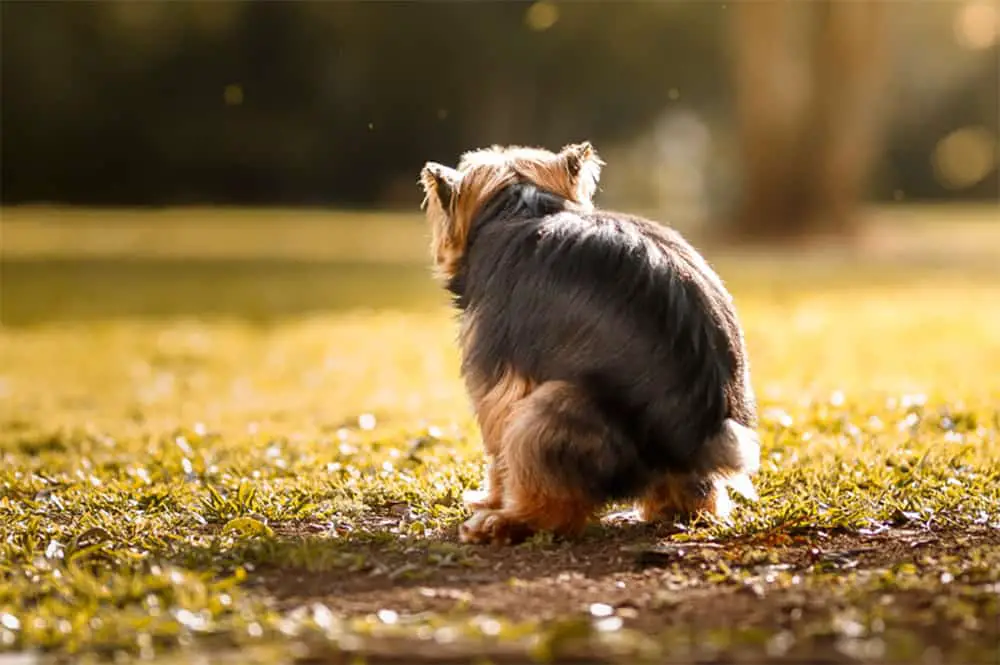
The best way of combating mental health issues in dogs is by giving them reassurance. Try giving your dog extra cuddles and helping him to get settled at night time as this can reduce anxiety.
If anxiety is the root cause of your dog’s upset stomach you should notice that when his anxiety is worse his diarrhea will be worse and when his anxiety is better his diarrhea will decrease, obviously dogs can not always tell you when they are feeling anxious so this may be hard to track.
Emotional Neglect
Another common cause of diarrhea in dogs is emotional neglect. You may have no idea that your dog is feeling neglected but this does not mean that it is not having a big impact on his mental and physical health.
Dogs need lots of attention to feel content so it could simply be that you have been busy with work or other commitments and that, that has left him feeling this way.
A good idea could be to try giving your dog lots more attention and seeing if the diarrhea decreases, if it does then you may have hit the nail on the head.
Illness of Disease
Much like with humans, diarrhea can be a sign that your dog has contracted an illness or disease.
What is especially interesting is that it is actually a symptom of very similar conditions that it would be in humans such as IBS (irritable bowel syndrome) and colitis.
Unfortunately, diarrhea in dogs can also be a sign of something more serious such as cancer or tumors.
You should look out for blood in your dog’s stool and if you spot any then you should take him to the vets immediately as this can be a sign that his issue is being caused by one of the more serious conditions.
Antibiotics Or Medication
If your pup is on antibiotics or any other medication then this could be the cause of his diarrhea as medications are not without their risk of side effects. This predominantly happens when the medication is attempting to kill the bad bacteria in your dog’s body but it also kills the good bacteria which is needed, thus causing diarrhea.
The best way of reducing the chance of this happening is by making sure that you are following your dogs vet’s advice carefully. Quite often you will be told to make sure that your dog has his medication at the same time as food in order to reduce the impact that the medication has on digestion.
As well as listening to your vet make sure that you are carefully reading any labels on the medication and following guidelines accordingly.
Final Thoughts
Nighttime diarrhea could be a sign of something very simple but it is important that you don’t ignore it. If your pups diarrhea has lasted a while or he has blood in his stool then it is important that you seek medical advice right away as this could be a sign of something more serious.

